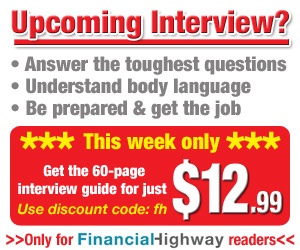The job market is tough right now, and that makes it all the more important for you to stand out when applying for a job. One of the best ways to stand out is to write a cover letter that highlights your qualifications, and catches the positive attention of hiring managers. If you want to stand out — in a good way — your cover letter is the way to do it. This is often the first thing that a potential employer sees, whether you include it as a hard copy, or send it as an email. Here are 5 tips that can help you write a better cover letter:
1. Know the Audience
 Rule #1 whenever you write anything is to know your audience. When you write a cover letter, your audience is your potential employer. Realize that your resume is more about a career. You can tweak it a bit to highlight items for a specific position, but the cover letter is where you show how well you fit in with a specific company and job description. Research your potential employer ahead of time, and pay attention to the job listing so that you understand what the employer is looking for. That way, you can illustrate the ways that you are ideal for the job, the company culture, and everything about the situation. Your cover letter should be tailored so that the reader feels as though you are the right fit.
Rule #1 whenever you write anything is to know your audience. When you write a cover letter, your audience is your potential employer. Realize that your resume is more about a career. You can tweak it a bit to highlight items for a specific position, but the cover letter is where you show how well you fit in with a specific company and job description. Research your potential employer ahead of time, and pay attention to the job listing so that you understand what the employer is looking for. That way, you can illustrate the ways that you are ideal for the job, the company culture, and everything about the situation. Your cover letter should be tailored so that the reader feels as though you are the right fit.
2. Use Active Language to Highlight Accomplishments
Active language is better than passive language. Use active, results-oriented language to highlight your accomplishments. You need to illustrate your accomplishments, whether you created a successful training program that increased salesperson effectiveness across the company, or whether you were part of an award-winning team. Show yourself as a dynamic team member who gets things done, and you will be more likely to get the interview — and maybe even the job.
3. Include Keywords in Your Cover Letter
 What are some of the key words and phrases in the job listing? What are the specialties of your potential employer? It’s important to understand these aspects of a company so that you can include keywords in your cover letter. Pay attention to what’s important to the employer, and then incorporate this information into your cover letter. When a hiring manager scans your cover letter, he or she will notice the important words and phrases. If they match what’s important to the company, there is a better chance that your cover letter will get a second, more thorough reading. When an employer doesn’t see anything relevant while scanning your cover letter, you are likely to have your application immediately trashed. Keywords catch attention and encourage a closer look. And that gives you a better chance to convince the potential employer that you are the right candidate for the job.
What are some of the key words and phrases in the job listing? What are the specialties of your potential employer? It’s important to understand these aspects of a company so that you can include keywords in your cover letter. Pay attention to what’s important to the employer, and then incorporate this information into your cover letter. When a hiring manager scans your cover letter, he or she will notice the important words and phrases. If they match what’s important to the company, there is a better chance that your cover letter will get a second, more thorough reading. When an employer doesn’t see anything relevant while scanning your cover letter, you are likely to have your application immediately trashed. Keywords catch attention and encourage a closer look. And that gives you a better chance to convince the potential employer that you are the right candidate for the job.
4. Let Your Personality Shine Through
More on Careers
Your cover letter is more than a re-hashing of your resume. The point of a cover letter is to allow the potential employer to get to know you and figure out whether or not you would be a good fit. A list of accomplishments and job positions doesn’t really convey that same information. While you don’t want to be unprofessional, you can still let your personality shine through. Share what you learned in a previous position, or how you felt after a specific and relevant accomplishment. You can even include specific information about what you admire about the company, and how you think you would contribute to its culture. This shows that you have thought about working at the company, and that you are interested in contributing in a meaningful way. Your cover letter should provide a glimpse of the kind of person you are beyond your recent job titles and descriptions.
5. Brevity is Your Friend
Your cover letter should be no more than a page. This forces you to skip explanations and back stories and get to the meat of the letter. It also forces you to express yourself dynamically, which can be an advantage. Make it a point to be brief, and to make sure that all the information you share is relevant to the position and the company.
Miranda is freelance journalist. She specializes in topics related to money, especially personal finance, small business, and investing. You can read more of my writing at Planting Money Seeds.
